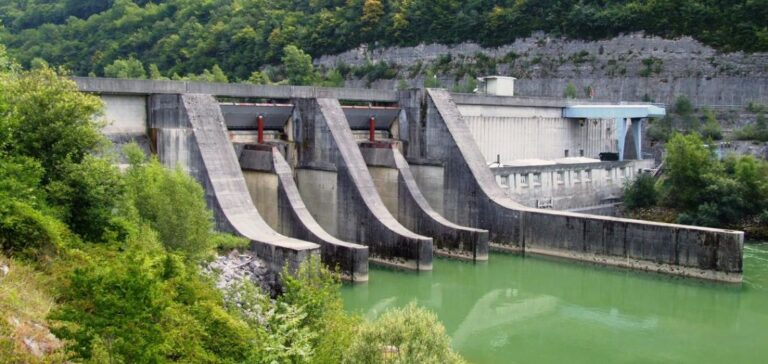The water level of the Coiselet hydroelectric dam, located between the Ain and Jura departments, is being urgently lowered following the identification of a geological risk. Operator Électricité de France (EDF) received a prefectural order on May 23 to reduce the reservoir level by four metres to prevent any impact on the infrastructure.
The dam, located between the municipalities of Thoirette-Coisia (Jura) and Samognat (Ain), retains the waters of the Ain River. It is situated upstream of other hydroelectric installations along the same river. Authorities identified an unstable rock mass that could detach and generate a surge capable of affecting the dam’s integrity.
Prefectural decision and immediate measures
According to the relevant prefectures, the decision is part of a precautionary approach while awaiting a more detailed terrain assessment. “The prefect of Jura and the prefect of Ain were informed of a risk of a rock block sliding into the dam reservoir, which could cause a significant wave over the dam and compromise its structure,” the authorities stated in a joint release published on May 24.
The drawdown began the day after the order was issued, on May 24. The objective is to limit the consequences of a potential rock collapse by reducing the water height and the pressure on the dam’s structure.
Impact on local hydroelectric output
The lower water level could temporarily affect electricity generation from the facility, although EDF has not disclosed the volumes impacted. The Coiselet dam is part of the regional hydroelectric infrastructure operated by EDF, which includes several plants along the Ain River.
A geotechnical assessment has been commissioned by the State to evaluate ground stability. EDF will be required to propose security measures based on the results of that analysis. No timeline has yet been announced for the investigations or any potential corrective works.
“This is a precautionary measure to ensure the safety of people and property,” the authorities noted, adding that the water level will remain lowered until further notice.






















